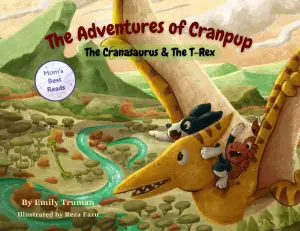Title: Embracing Adventure and Growth in 365 Days to Alaska
When I first stumbled upon 365 Days to Alaska by Cathy Carr, I felt an immediate pull. As a former homeschooler and now a homeschooling mom, my eyebrows naturally raised at the thought of how the book would handle themes so close to my heart. Balancing my skepticism with my flair for adventure, I dove in, eager not just to see if it would resonate with my own experiences in Connecticut, but to ensure it didn’t fall prey to the stereotypes that often color portrayals of homeschooling and rural life.
From the first page, I was captivated. Cathy Carr draws us into the chilly air of Alaska, where we meet Rigel and her family, embarking on a journey towards subsistence living. What begins as a common theme—pursuing a more connected life in nature—quickly transforms into a rich tapestry of character development and heartfelt struggles. For Rigel, the adventure isn’t just about surviving the wilderness; it’s a profound exploration of identity, resilience, and familial bonds.
One of the aspects that most impressed me was how Carr deftly navigates the complex realities of homeschooling. Rather than using it as a scapegoat for social awkwardness or disconnection, she presents it as one facet of Rigel’s broader experience. Rigel’s contrasts with her outgoing sisters beautifully illustrate that personality shapes social skills more than educational settings ever could. This refreshing perspective replaces the tired trope of the “homeschooled kid learns to thrive in school,” instead allowing for genuine personal growth within the context of family connection.
While my own experiences in Connecticut are varied, I found myself wishing for a slightly fuller depiction of the state. Nevertheless, Carr skillfully sidesteps the more egregious stereotypes. She highlights Connecticut’s diversity and beauty without leaning into one-dimensional portrayals, showing a wealth of experiences that speak to the state’s multifaceted nature.
The portrayal of off-the-grid living struck a thoughtful balance, shedding light on both the challenges and the fierce beauty involved. This is particularly resonant as an homage to responsibility and respect, especially for the children navigating these choices. Rigel’s interactions with hunting and gun safety underscore the importance of guidance and education, challenging the narrative that those who live close to nature must be either romanticized or vilified.
Through all of this, 365 Days to Alaska is fundamentally about family. The relationships between siblings resonate deeply, emphasizing that sisterhood—like nature itself—requires nurturing, patience, and, at times, a little grit. I was reminded of my own familial connections and the loyalty that grows from shared struggles.
In embracing this narrative, I discovered a story that speaks to adventure seekers, families, and anyone who has ever yearned for more than what their current world offers. Cathy Carr invites us into a robust landscape filled with emotion, reflection, and growth.
I wholeheartedly recommend 365 Days to Alaska to anyone who values stories of authenticity and connection. It left me reflecting on the joys and challenges of living purposefully, making it a significant addition to my reading journey. This book will surely resonate with fellow readers looking for warmth—and perhaps a little wildness—in their next read.






